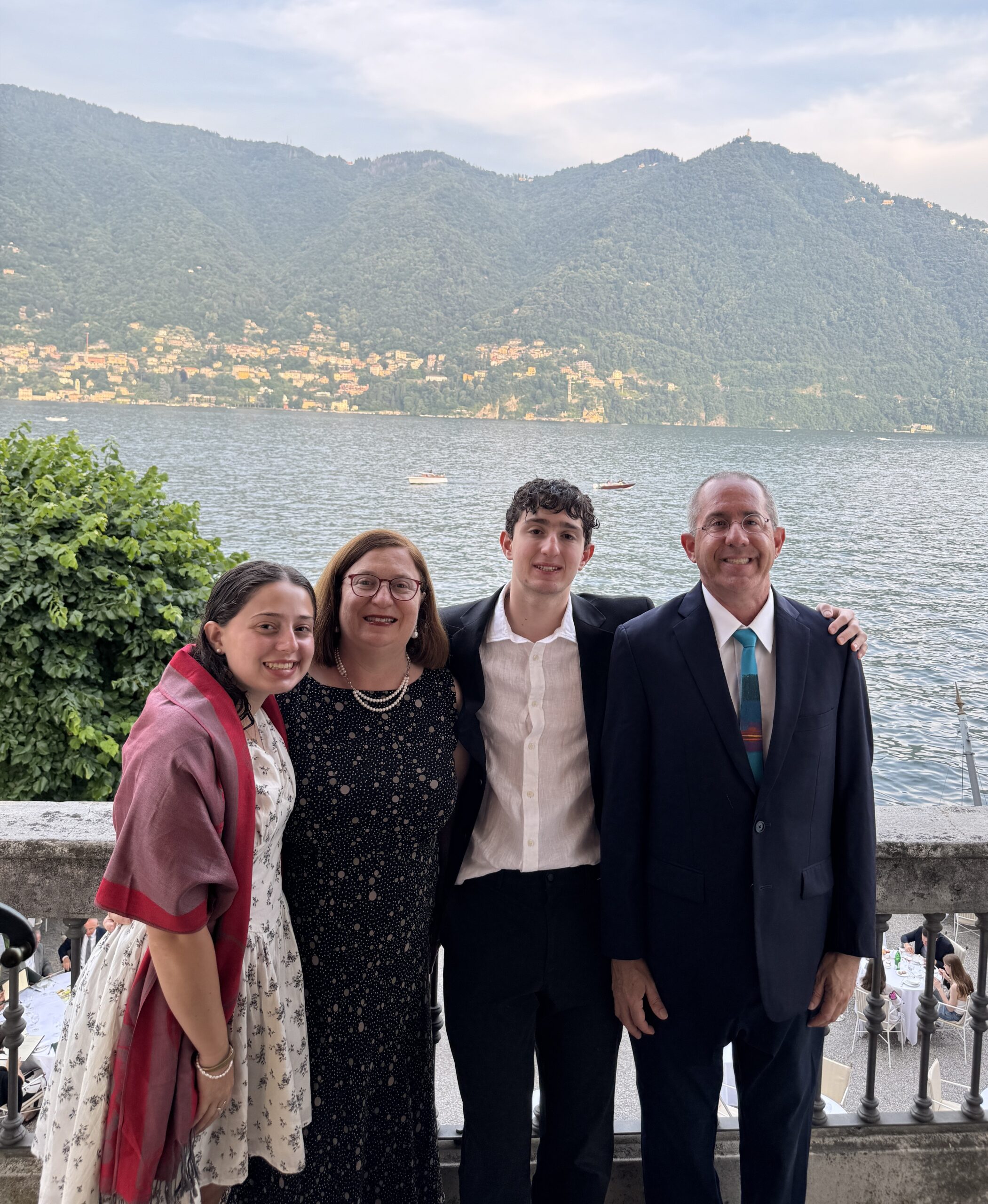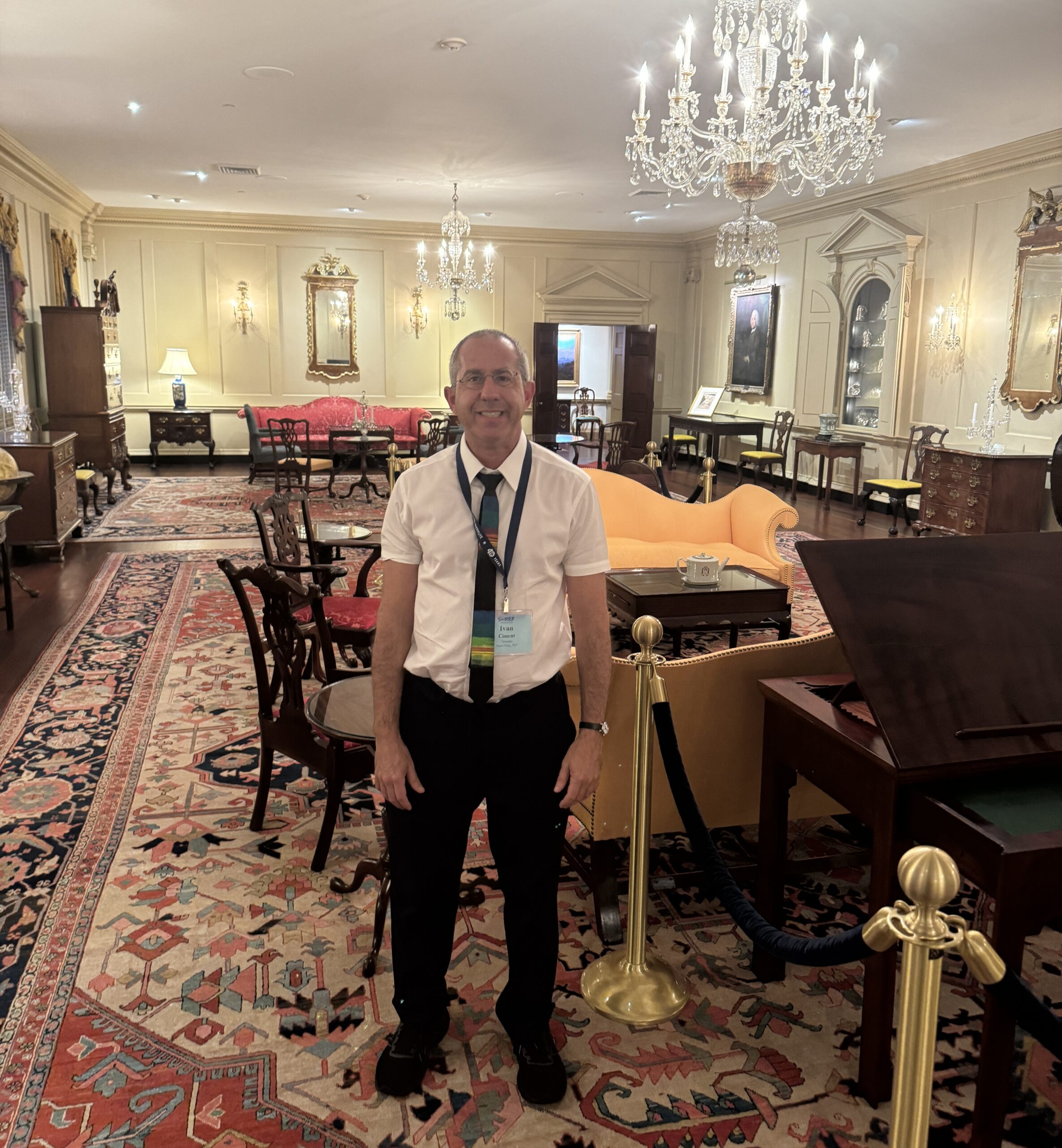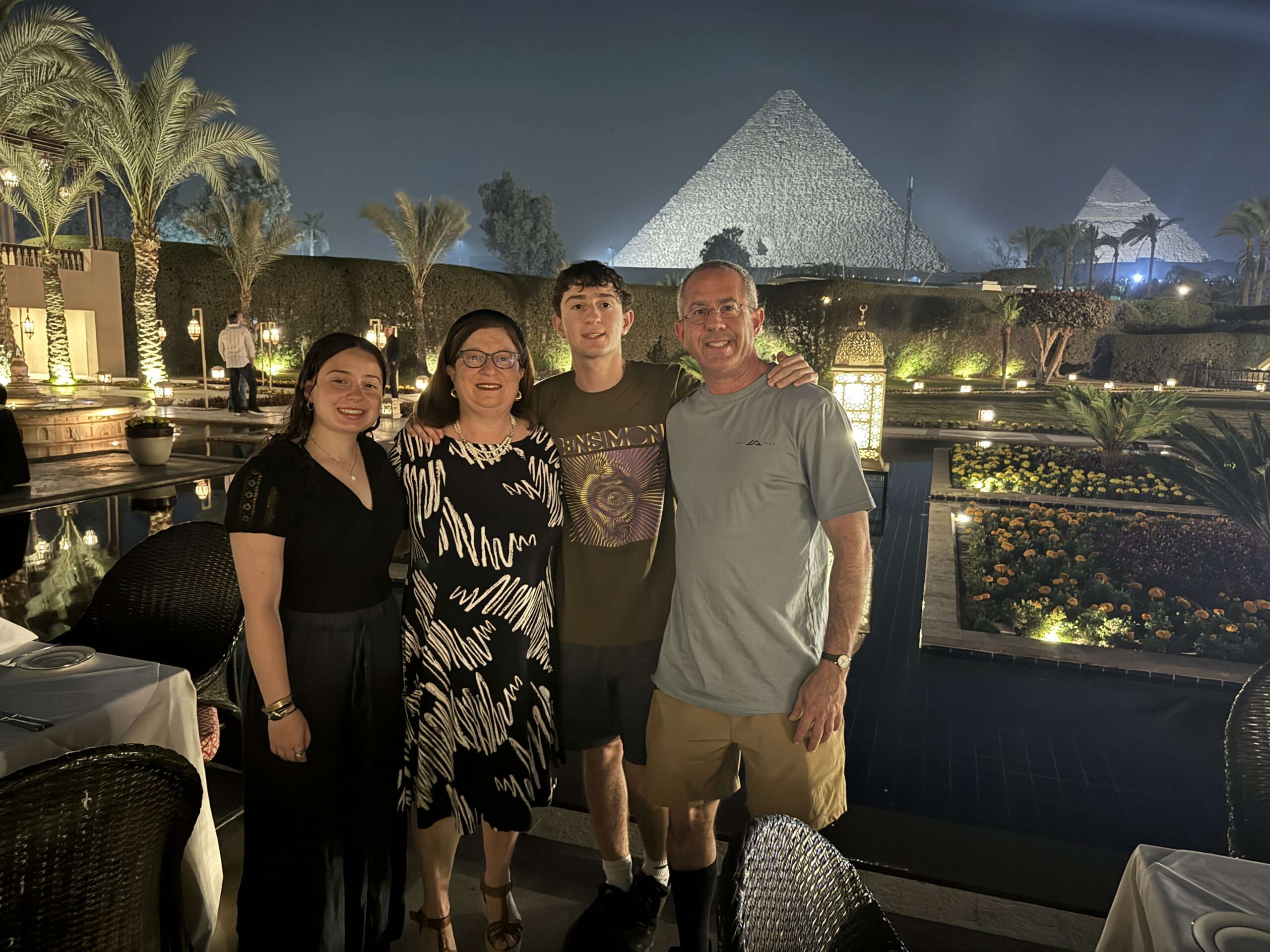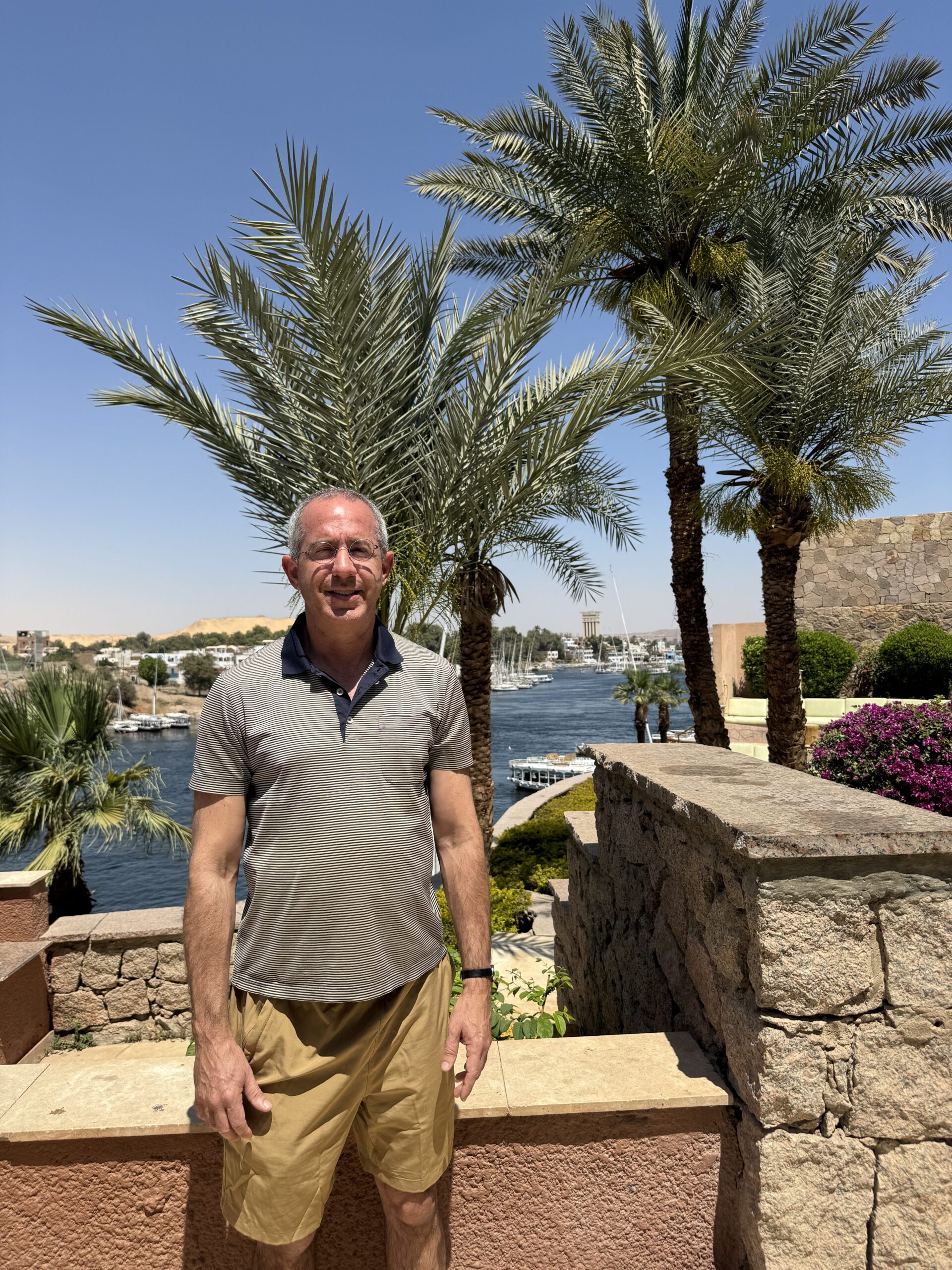A Jew was to be knighted by the Queen of England and was told in preparation to memorize a Latin phrase for the occasion. So when the Queen put her sword upon his head, he was to recite the phrase but he got so nervous that he forgot it. Instead, he said the only phrase he knew in a language other than English – Mah Nishtana Ha’Layla Hazeh M’Kol Haleilot (“Why is this Night Different From All Other Nights” – which is what the child says at the Passover Seder). Thereupon the Queen turned to her advisor and said, “Why is this Knight Different From All Other Knights?”
The point of this year’s discussion is to look at something that appears to be one thing and turns out to be two things, just like the one word “Night” turned out to have two meanings.
If you go through the Bible carefully, you will realize that there are really two holidays that are referred to: Chag HaPesach (Festival of the Paschal Sacrifice) and Chag Hamatzot (Festival of Unleavened Bread). We tend to think of them as interchangeable terms meaning Passover but they really are distinct. In fact the Bible expressly states that Chag HaPesach starts just after noon on the 14th day of the Hebrew month of Nissan and concludes somewhere between midnight and morning of the 15th day of Nissan. Chag Hamatzot begins at noon on the 14th day when one must stop eating leavened bread and continues through the 21st day of the month. We have the Passover Seder on the night of the 15th (and people outside Israel do it again on the night of the 16th).
Now it begins to get interesting. If you read Exodus Chapter 12 or any Haggadah (book of Passsover Seder liturgy), in answer to the question “Why do we eat Matzah (unleavened bread)?”, you will see verse 39 quoted which says that the Jews were baking bread but had no time to do so because they were being driven out of Egypt. Commentators agree they were doing so on the night of the 15th. How could they be doing so if 25 verses earlier (verse 15) the Bible says it is prohibited to eat or own any bread? The answer is that verse 15 which calls for the creation of Chag Hamotzot is talking about the future and not the present. The reality is that the Jews in Egypt celebrated Chag HaPesach and did not celebrate Chag Hamatzot. That was for later generations.
Today, we don’t think very much about Chag HaPesach because we’re not in the business of doing sacrifices. The lamb shank seems to be an anachronism on the Seder plate. But there are some real interesting points here worth mentioning.
The two holidays, Chag HaPesach and Chag Hamatzot, parallel two critical events in the Bible that construct the covenant between the Jews and God. Abraham entered into two covenants with God – the Brit Milah (circumcision) and the Brit Bain Habtarim (the covenant between the turtledoves). The promise behind the Brit Bain Habtarim was that God would make the Jews into a nation and the nation would occupy a land. But nations and land come and go and even in Genesis God tells Abraham that the Jews will first be enslaved in Egypt for several hundred years. The Brit Milah was that God would sustain that nation forever and would serve as a God to it, even when it was not on the land.
The liturgy of Chag Hamatzot and Chag HaPesach parallel these two covenants. Chag HaPesach is the one commandment in the Bible that can only be observed by one who has been circumcised. If you’re not circumcised, you cannot participate in the Chag HaPesach. If you don’t do the Chag HaPesach or the Brit Milah, the punishment is being cut off from the Jewish people. These are the only two positive commandments that carry such a punishment for failure to do them. Chag HaPesach is the coming to fruition of the covenant between the Jews and God that establishes the Jewish religion. The Jews had to take the Egyptian god, kill it, put its blood on its doorposts and trust that God was going to go and take down the Egyptians and deliver the Jews from Egypt. Also that all the first born sons killed that night precisely at midnight would be Egyptians and not Jews. The first 9 plagues God does all the work; now the Jews have to show good faith. The word “Ote” meaning “a divinelike sign” is used in the biblical text both at the Brit Milah and at Chag HaPesach; it is a word not used often. An incidental parallel in our liturgy is that the prophet Elijah, the harbinger of the Messiah, figuratively visits every circumcision ceremony as well as every Passover Seder.
Brit Bain Habtarim is fulfilled later, when the Jews cross the Red Sea. It is only then that they see the Egyptians drown, the sea is split and they are about to cross it, that the Bible says “they Believed in God and Moses his Servant.” In the Brit Bain Habtarim, Abraham splits two animals, and God’s fire and cloud pass between the parts of the animals. At the Red Sea, God splits the Red Sea and the Jews pass between its parts. The same words “Fire and Clouds” are used in the Bible at both events, and again these words are not used often. Chag Hamatzot is the celebration for posterity that thus comes into existence; the nation that was promised to Abraham has come into being.
The two festivals are thus both critical – the becoming of a nation, and the becoming of a religion. Each derives its full value from the other.
After the Holocaust, there is a story of a famous Rabbi Simon who had come to America and returned to Europe to visit DP camps. There was a big ceremony one night with a lot of dancing around a Torah. One man refused to participate and the rabbi went to see him to ask why. The man said, When I was in the camp, there was a fellow with a prayer book who used to pray every day. I was amazed at his courage for bringing it into the camp with him and using it every day. That is until I found out that he would allow other prisoners to use it only if they gave him 25% of their daily rations. I decided then that any religion that could be sanctified through such a person was itself profane and I wanted nothing further to do with it or such people. The Rabbi said to him, I can understand your feelings but look at it another way. Forget about this one man. Consider all the people around him who were willing to give up 25% of their daily rations in order to use his prayer book to pray. The man said, you know, you have a point there, and he then decided to spend the rest of his life in service to the Jewish nation. That man in this story was Simon Wiesenthal.
The point of this story is the point of the Seder which goes back to the play on words with the English Knight. Why is this Night Different, not only from other nights but from anyone else’s nights? The Passover Seder is unique – none of the other mainstream religions have anything within their rituals that parallel it. The holiday of Passover is two sides of the same coin – the celebration of being both a nation and a religion and the inseparability of each to the other. The Jewish nation was preserved through its religion; its religion was affirmed by its national experiences and revelations. Both covenants served vital purposes and both festivals reaffirm the covenants. Passover is in reality two holidays which serve to reaffirm our national identity as well as our religious beliefs. The Bible says that the covenants are to remain forever, and also the Passover holiday is to remain forever as long as we continue to observe them. But if we should forsake Passover, He will cut us off as well. A good incentive to keep showing up.
The Seder is therefore our most powerful link to the future and to bringing about the two redemptions called for in the covenants – a national redemption which has not yet been fully realized, and a religious redemption which is also a work in progress. It is a reminder that we cannot realize one without the other, but that because they are so intertwined, they are both achievable. May our Seders help bring them about speedily in our day.
This text adapted from an address by Rabbi Ari Berman of the Jewish Center in New York, 31 March 2001.





